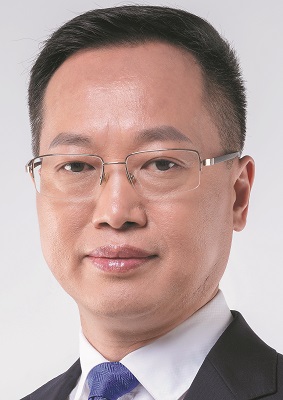Hisense boss highlights innovation


Amid challenges posed by deglobalization, Chinese enterprises looking to expand internationally need to focus on technological innovation and the development of new quality productive forces to strengthen their overseas market presence, said Jia Shaoqian, a deputy to the National People's Congress.
Jia, who is also president of Hisense Group, a leading Chinese home appliance manufacturer, said that like their global counterparts, Chinese enterprises are navigating a challenging environment in a shifting global landscape, but the overarching momentum toward globalization continues.
To mitigate the negative impacts of the current situation, it's imperative for businesses to bolster their technological innovation capabilities to deliver high-quality products and services, so that they can satisfy consumer demands for an improved standard of living, Jia said.
"After all, the desire for a better life is a universal desire shared by people everywhere," he said.
The home appliance sector has been a leading force in driving China's overseas trade expansion. However, Jia said the competitive edge for Chinese enterprises no longer lies in supply chain cost advantages alone but in the "three highs": high technology, high added value, and high quality.
The trend toward intelligent, high-end and branded products is reshaping the export landscape for home appliances, driving growth and revival in the export market, he said.
"In the process of expanding our footprint overseas, we have increasingly recognized that Chinese enterprises that have proactively embraced high-end transformation demonstrate enhanced resilience and stronger momentum when venturing abroad. They are also more adept at achieving a competitive edge," Jia said.
He said that Chinese home appliance products have long been competing in the low-end market. But now, through technological innovation and brand development, Chinese manufacturers, including Hisense, are venturing into the mid to high-end market.
For example, large televisions priced above $500 are particularly favored by overseas consumers, Jia said. Sales of Hisense TVs in that price range rose 59 percent year-on-year last year, with its laser TVs achieving over 70 percent growth in competitive markets such as Germany, France, Italy and Spain, according to the company.
Jia said the only way to increase the premium value of products is through innovation, and that is why accelerating the development of new quality productive forces is crucial for Chinese enterprises looking to expand overseas.
Besides focusing on enhancing quality and upgrading manufacturing, Jia also emphasized that adopting localized operations should be a pivotal strategy for Chinese enterprises aiming to expand globally.
Hisense's "local for local" strategy has helped the company successfully manage its overseas business. In South Africa, where it has the leading market share in both refrigerators and TVs, it employs 1,000 local staff, with approximately 70 percent of management positions held by locals, Jia said.
"In recent years, Chinese companies' international expansion has not only generated tax revenue and created jobs in host countries but has also contributed to enhancing the local manufacturing level, socioeconomic development, living standards and social stability," he said.
This positive impact is gradually facilitating a smoother path for Chinese enterprises to globalize, reinforcing the belief that despite temporary setbacks, globalization remains the prevailing trend, Jia said.
- Zhuhai man given death for car attack
- China revises upper age limit for driver's license
- Infant immunization schedule changes from Jan 1
- Peak season for respiratory illnesses continues
- Former deputy Party chief of Shanxi given life sentence for bribery
- One-year-old, Beijing Library serves book lovers with passion





































